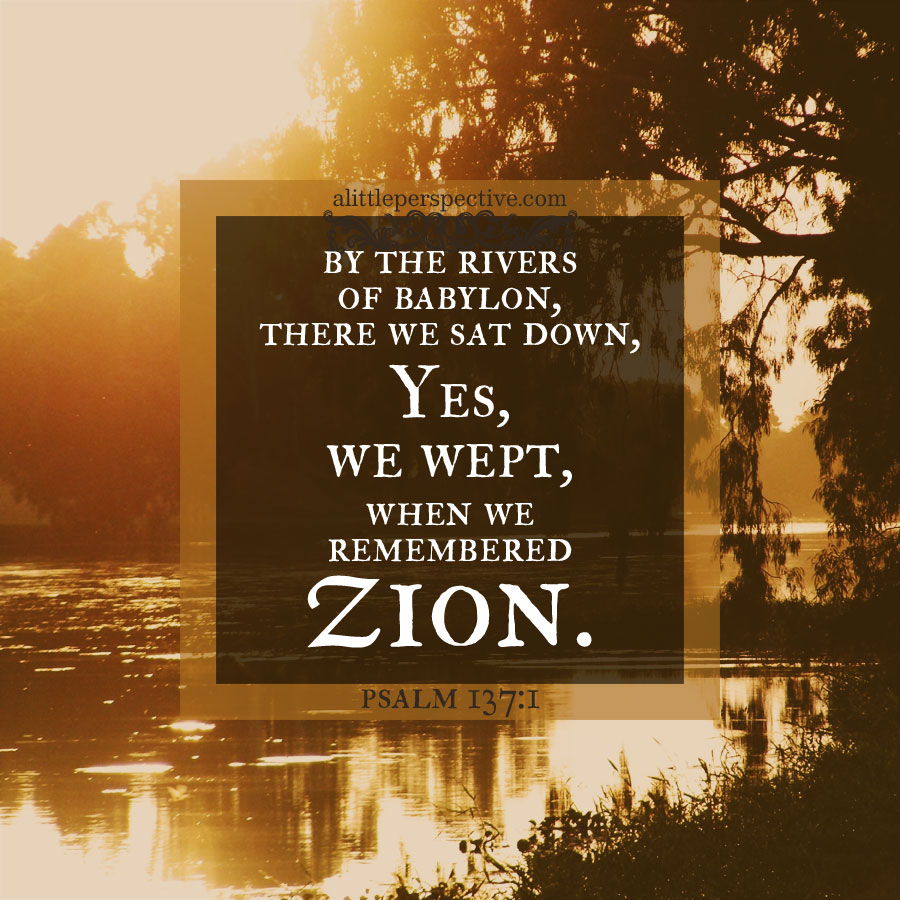Read Psalm 137 at Bible Gateway.
The paragraph divisions:
1 By the rivers of Babylon, There we sat down, yea, we wept When we remembered Zion.
2 We hung our harps Upon the willows in the midst of it.
3a For there those who carried us away captive asked of us a song, And those who plundered us requested mirth, {n}
3b Saying, “Sing us one of the songs of Zion!”
4 How shall we sing the Lord’s song In a foreign land?
5 If I forget you, O Jerusalem, Let my right hand forget its skill!
6a Let my tongue cling to the roof of my mouth— If I do not remember you, {n}
6b If I do not exalt Jerusalem Above my chief joy.
7a Remember, O Lord, against the sons of Edom The day of Jerusalem, {n}
7b Who said, “Raze it, raze it, To its very foundation!”
8a O daughter of Babylon, who are to be destroyed, {n}
8b Happy the one who repays you as you have served us!
9 Happy the one who takes and dashes Your little ones against the rock! {p}
The chiastic structure:
1a) Psa 137:1-4, By the rivers of Babylon Judah wept;
1b) Psa 137:5-6a, Let me not forget Jerusalem;
central axis) Psa 137:6b, If I do not exalt Jerusalem above my chief joy;
2b) Psa 137:7, Remember, O Lord, the sons of Edom;
2a) Psa 137:8-9, Let the daughter of Babylon likewise weep.
The 1A pair distinctly conveys in Hebrew that the captors are mocking the captives by demanding of them songs of mirth of their homeland. The 2A pair is a prophetic prayer that so may Babylon experience what they have dished out to others; the implication being that Judah’s little ones were dashed against the rock by the Babylonians.
The B pair and the central axis is a plea in captivity, not to forget who they are or where they are from, to not assimilate into Babylonianism but to remain the distinct people that they are. The reference to the right hand forgetting its skill and the tongue cleaving to the roof may refer back to the demand for songs: let me forget how to play the harp and sing the songs before I forget you, O Jerusalem!

















Leave a Reply